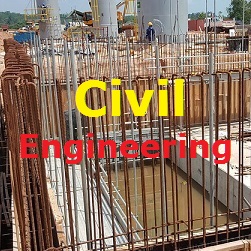Civil Engineering after +2
This Blog explains Introduction about Civil Engineering. Eligibility criteria to study after + 2 ? Name of Few Institute offering courses. Famous Names of Successful personalities in Civil Engineering. Job Role after completing Courses.
 Introduction: Civil Engineering involves planning, designing and executing structural works. The course deals with a wide variety of engineering tasks including designing, supervision and construction activities of public works like roads, bridges, tunnels, buildings, airports, dams, water works, sewage systems, ports etc.
Introduction: Civil Engineering involves planning, designing and executing structural works. The course deals with a wide variety of engineering tasks including designing, supervision and construction activities of public works like roads, bridges, tunnels, buildings, airports, dams, water works, sewage systems, ports etc.
Eligibility
10+2 with Physics, Chemistry, and Mathematics as core subjects.
Courses
1. B. Tech
2. M. Tech (Dual Degree)
3. Ph. D
Institutes/Universities
1. Indian Institute of Technology (IIT) Kharagpur
2. Indian Institute of Technology (IIT) Kanpur
3. Andhra University, Visakhapatnam
4. Calicut University, Malappuram, Kerala.
5. Aliah University, Kolkata
6. Rajasthan Technical University, Kota, Rajasthan
7. Guru Gobind Singh Indraprastha University, Delhi
8. Indira Gandhi National Open University,
New Delhi (http://www.ignou.ac.in/)
Famous Names in the field of Architect from India
- Sir Mokshagundam Visvesvaraya: Sir Mokshagundam Visvesvaraya is one such civil engineer. Even we celebrate his birthday as “Engineer’s day”.
- E Sreedharan (The metro man): He’s the backbone on which the rests the success of the Delhi Metro Rail Corporation.
- Kanwar Sen:conceptualized the Indira Gandhi canal in Rajasthan. He is one of the greatest names associated with river projects in modern India .
- Artech Consultant :Er. Sushil Bajaj awarded by The Institution of Engineers and having many other achievements
Website: http://www.artech-bajaj.com/ - Chewang Norphel: the Ice Man of India, who has created 15 artificial glaciers.
Job Role of Civil Engineers
Civil Engineer, Structural Engineer, PMC Engineer, Design Engineer
Disclaimer: These lists are only illustrative and are expected to generate enough curiosity in the visitor to want to inquire/explore further on the scope, possibilities, avenues, etc. for each of these courses and/or for looking for other options/areas that go beyond these courses. It may also be noted that most of these courses are also offered by several private institutions/universities. The reader is expected to further research on this.
- Visit & like our facebook page.
- Let’s not end but also start success by exploring our other valuable contents on website like Knowledge exchange, Blog Bank, Product and services etc.
- Write us at [email protected] to Join hands Use subject line
“Interested in Engineering Advancement Group :YOURNAME :MOBILE :EMAIL” and share your brief Profile
Check More Blogs here for Computer Engineering, Electronics Engineering & More

 Introduction: Architecture is the science that deals with planning, designing, safety, affordability, and supervision of construction works for houses, office buildings, skyscrapers, landscapes, or entire cities.
Introduction: Architecture is the science that deals with planning, designing, safety, affordability, and supervision of construction works for houses, office buildings, skyscrapers, landscapes, or entire cities. Introduction: Computer Science Engineering involves both computer science and electronics engineering. It includes testing and designing of computer components. There are two types of computer engineers. Computer software engineers and computer hardware engineers. Computers are an integral part of the development of technology. Without computers, humans wouldn’t have reached the technological advancement which thrives today and all the credits go to some of the greatest computer scientists/engineers.
Introduction: Computer Science Engineering involves both computer science and electronics engineering. It includes testing and designing of computer components. There are two types of computer engineers. Computer software engineers and computer hardware engineers. Computers are an integral part of the development of technology. Without computers, humans wouldn’t have reached the technological advancement which thrives today and all the credits go to some of the greatest computer scientists/engineers.